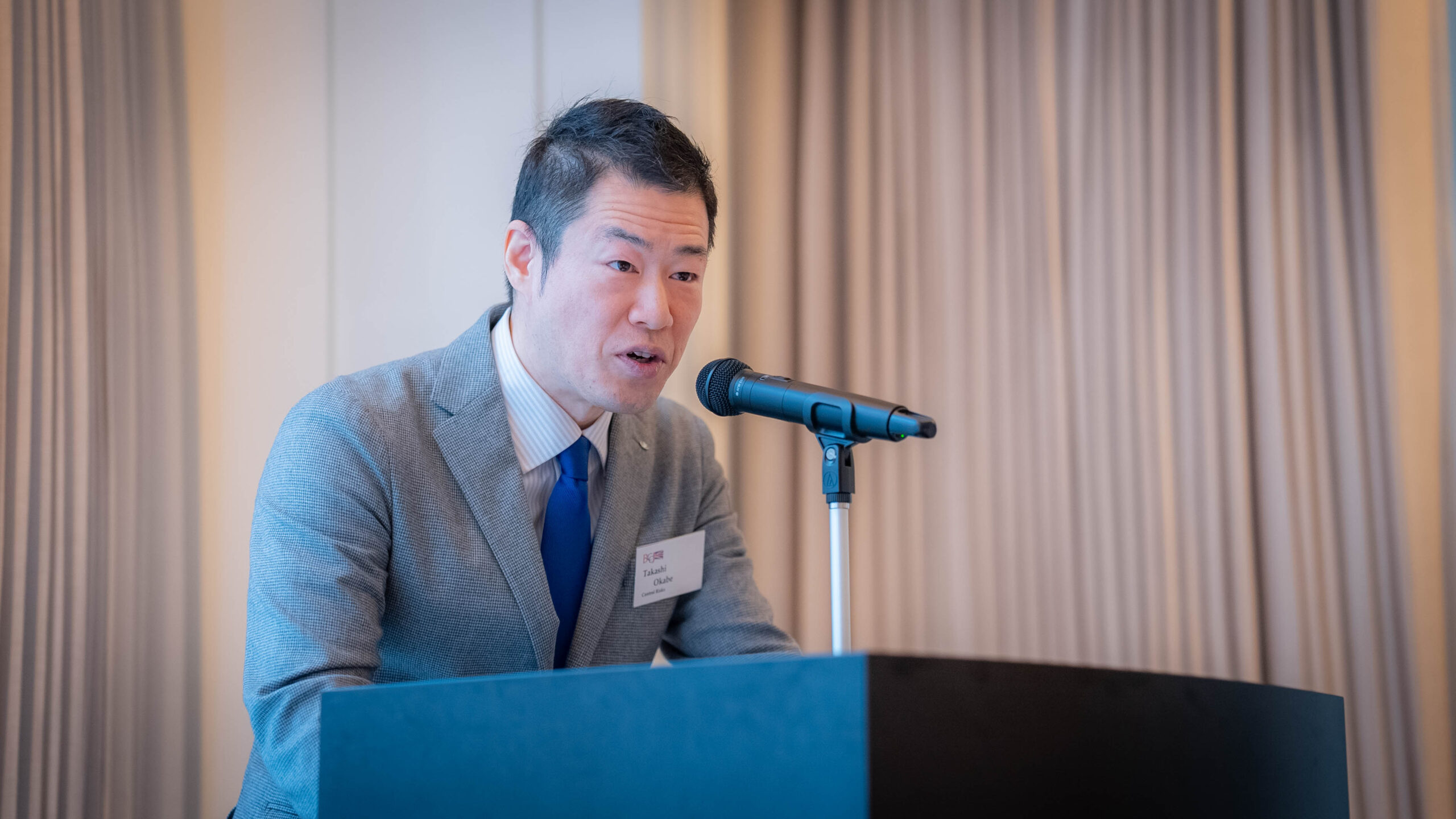Member? Please login
How geopolitical outliers and black swan scenarios will reshape Japan

Written by BCCJ
April 5, 2024
Past Event Round Ups
Geopolitical risks are rising for Japan and the world in 2024, highlighted by the U.S. presidential poll, growing China–Taiwan tensions and the war in Ukraine. So, how can Japanese companies navigate these challenges while preparing for more black swan events?
This was the topic of British Chamber of Commerce in Japan members at an event hosted by experts from global specialist risk consultancy Control Risks in early March. The speakers comprised Takashi Okabe, Stephen Norris and Michael van Zyl from Control Risks who considered the topic: “How Geopolitical Outliers and Black Swan Scenarios Will Reshape Japan.”
These outliers, explained Okabe, could be considered to have a low probability of occurring but to have a significant impact nationally, regionally and internationally.
‘What if’ Trump
Norris began by addressing “the elephant in the room” for many Japanese companies, namely the prospect of former U.S. President Donald Trump being re-elected in the November U.S. election.
“Almost every Japanese company we talk to says ‘What if Trump comes back?’ They are worried about the state of the world if Trump is in charge,” he said.
Norris pointed to Trump’s potential unwinding of the Biden administrations’ Inflation Reduction Act, a landmark U.S. law that creates significant incentives for clean energy, including in the electric vehicle supply chain and solar manufacturing.
“If Trump comes in and undoes the Inflation Reduction Act … it’s a huge blow for the whole global [clean energy] industry. Critical minerals, batteries, technology, other supply chains, even renewable energies, they’re all exposed if Trump comes in and guts the Act,” he said.
Rather than scraping the legislation, Norris suggested Trump could undermine it by firing relevant staff and not replacing them, making it “less effective and impactful than if Biden is re-elected.”
He also argued that Trump could undermine the West’s broad China “de-risking” strategy, which could force Japan and other U.S. allies to take more independent action on defence and other policies.
More worryingly for Japan, a second Trump administration could complicate Japan’s ties with the rest of the region, including South Korea, Australia and India, Norris said.
Opportunities could come for investors in Japan’s emerging semiconductor industry, which has attracted significant international attention following the arrival of Taiwan Semiconductor Manufacturing Co (TSMC), the world’s largest contract chip maker, with its chip plants in Kumamoto Prefecture.
Norris said Japanese regulators could spur more investment in clean energy with additional subsidies for areas such as hydrogen, minerals processing and the critical minerals supply chain.
He said Japan could surprise the world by becoming a “global first mover in harvesting minerals from the seabed, within its exclusive economic zone.”
Taiwan, economic risks
Another major risk for Japan is the prospect of Japanese companies being caught in the economic crossfire as tensions escalate between China and Taiwan across the Taiwan Strait.
A black swan event could involve the European Union seizing Russia’s frozen U.S. dollar assets to fund Ukraine, which could trigger a “global regulatory fracas.”
Van Zyl raised another potential black swan event, namely the risk of a hostile takeover of a leading Japanese trading house.

“These companies have a hallowed status in the Japanese economy … But there are two drivers which may make [a hostile bid] more likely – corporate governance reform and shareholder activism,” he said.
He said a corporate scandal, exposure to Russia or other issues could be the catalyst for such a bid, although the more likely scenario would be a midsize company being taken over by its rivals as part of industry consolidation.
Asked about how Japanese companies could manage black swan risks, Okabe said it was important for firms to take more of a top-down approach led by senior management.
“Japanese companies are good at compliance but not risk management. Compliance is about regulations whereas risk management is vague,” he said, suggesting senior management needs to more actively drive risk management policies.
Audience questions to the panel included the threat to the U.S. dollar as the world’s reserve currency and the impact of potential new trade barriers on Japan.
Another issue raised was the Kishida administration’s plans to increase defence spending, with Norris describing the debate as mainly over “borrowing or taxation to fund it, not whether they are going to do it.”
Asked whether a re-elected President Joe Biden could increase global risks, Norris said the rest of the world (outside the United States) would “feel more stable and comfortable with Biden [still] in charge,” particularly countries such as Japan and Australia.
“If Biden gets back in, it makes it easier for the West to align on the big threats,” he said.
The panel was also asked about the risks around the bid by Japan’s Nippon Steel for iconic U.S. steelmaker U.S. Steel, which has attracted attention from both presidential candidates.
“You have to sell it that it’s not a threat to U.S. jobs; it’s about keeping jobs in the U.S.” van Zyl said. “Despite the economic benefits, politically this deal has a difficult narrative to sell: you literally have a company with Japan in its name taking over another with US in its name.”
With geopolitical risks escalating, Japanese companies have no shortage of potential black swan events to prepare for in the Year of the Dragon.









